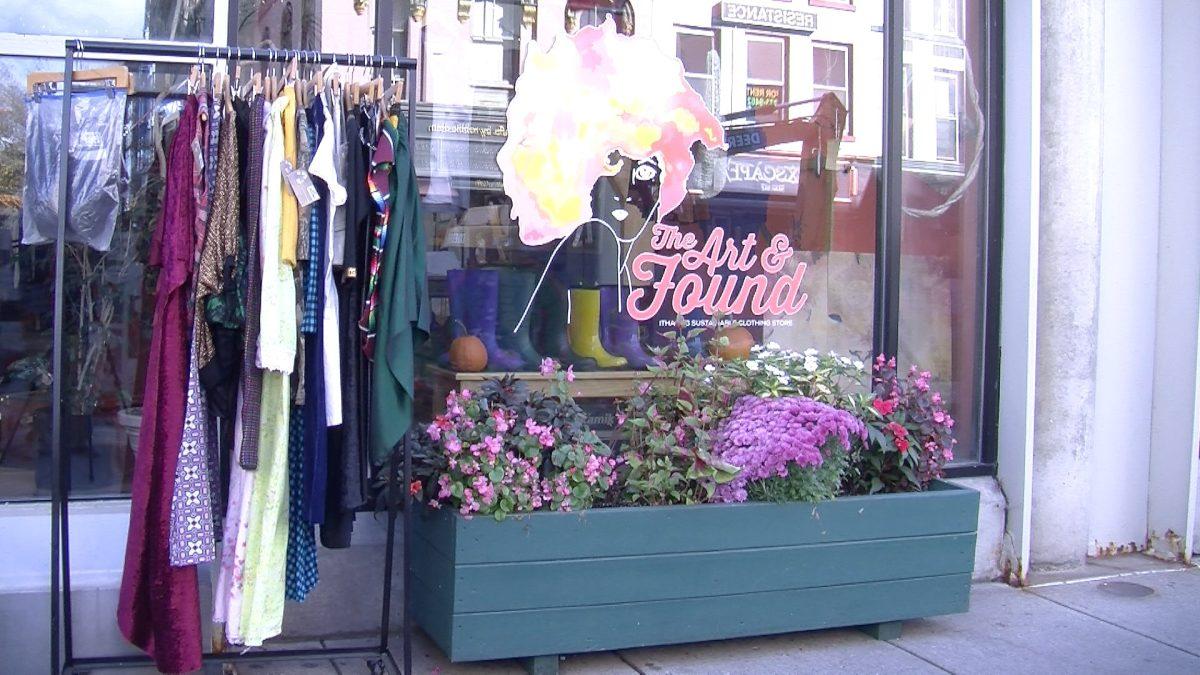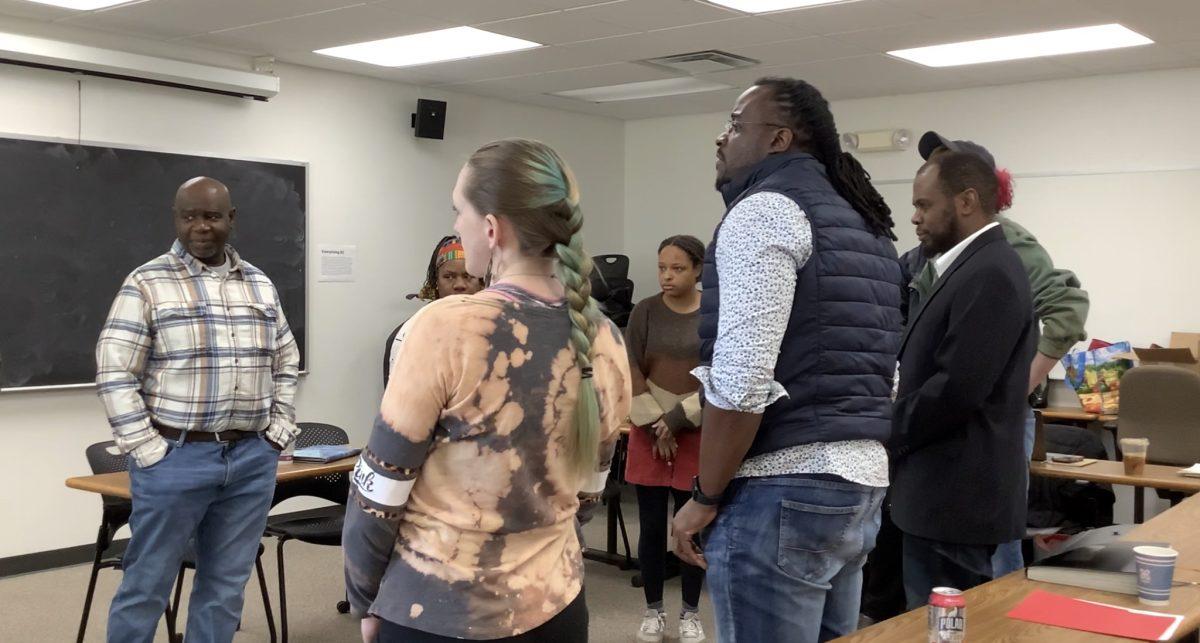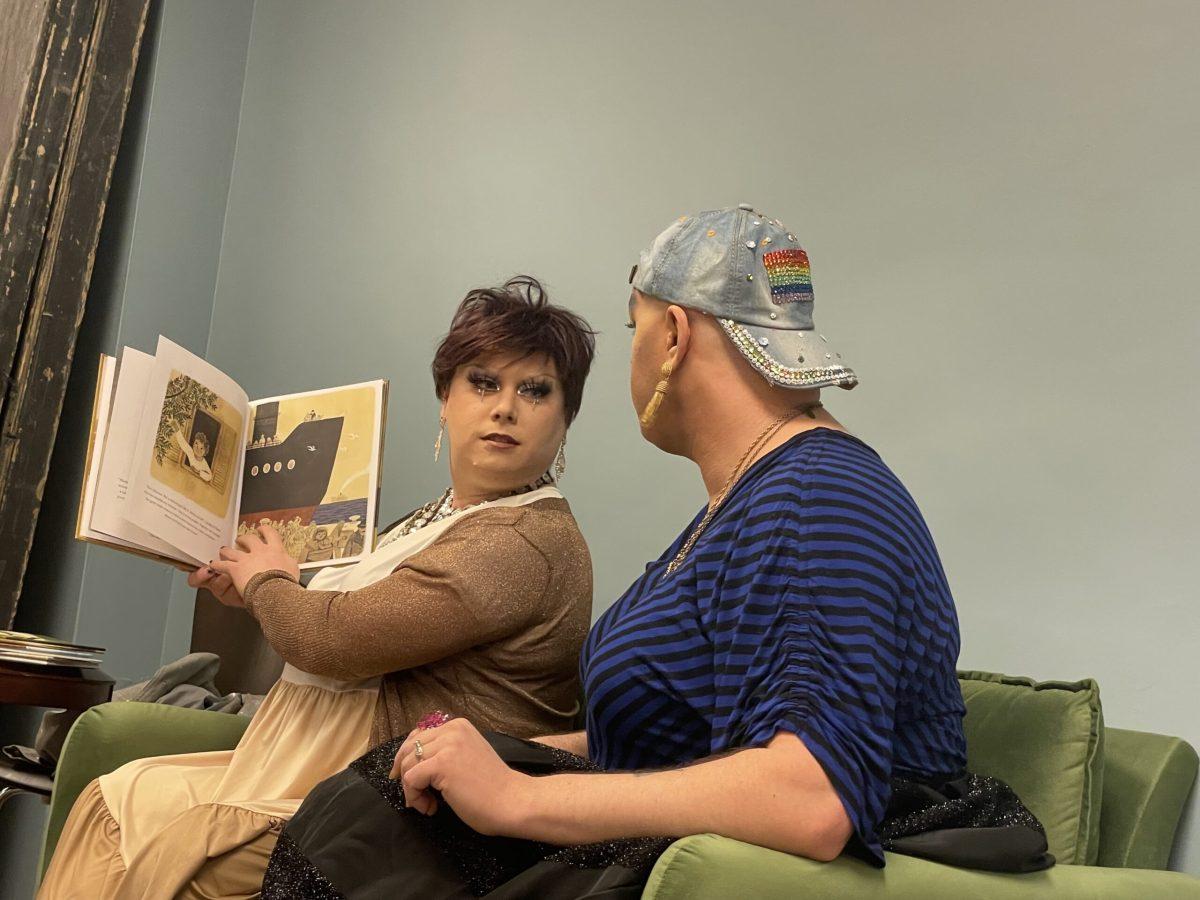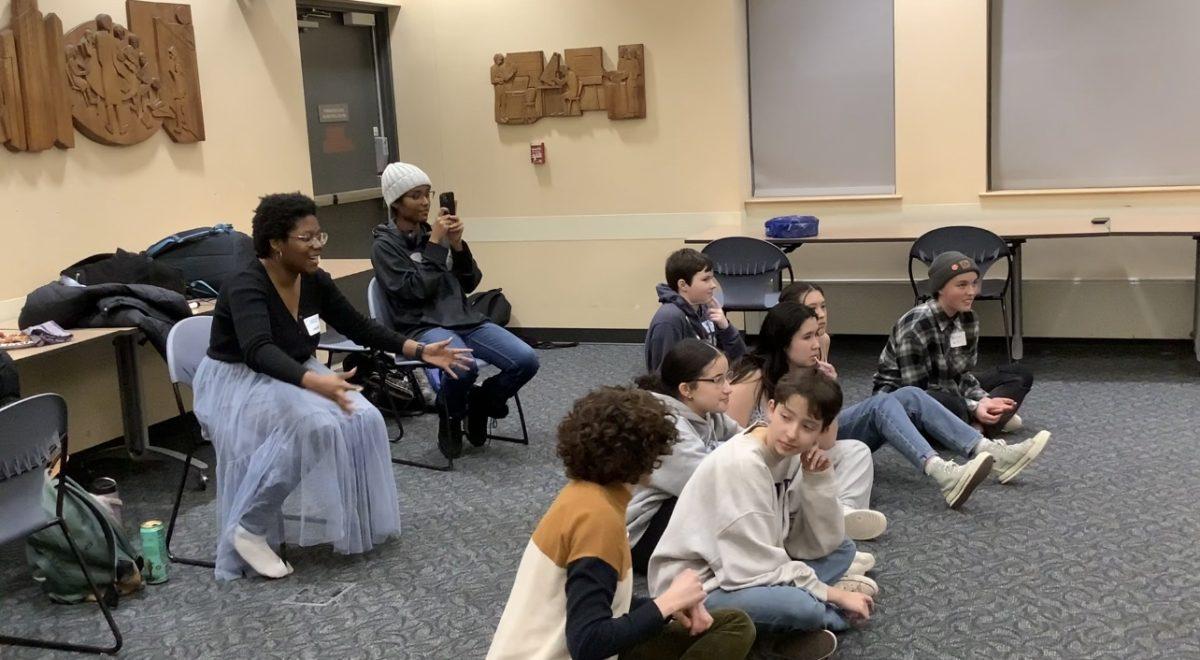It takes anywhere from 700 to 2,000 gallons of water to produce about a pound of conventional cotton – enough for a single T-shirt, according to the National Resources Defense Council. But Royale is able to keep up with trends, tapping into used T-shirts for raw material.
“If we are noticing that cosmic galaxy [T-shirts] are really popular, we think how can we make this ourselves,” Royale said.
Remanufacturing or reusing textiles can save up to 85 percent of the energy required to produce the same product from virgin materials, according to a study conducted by the Massachusetts Institute of Technology.
Cotton Road documentarian Laura Kissel said overseas manufacturing is cheaper because there is a lack of regulations for labor and environmental protections compared to the U.S. Cotton Road follows cotton through its stages of production around the world, exploring these issues of the textile industry.
“Anything that is manufactured has a supply chain, so what my film does is make that supply chain visible by showing the multiple steps along the way and the workers who are in that supply change,” said Kissel, an Ithaca College alumna. “I think the question around sustainability is who are the people who make the things that we consume.”
SewGreen is another local initiative that collects unwanted and unused fabric and yarn to sell for local sewers and knitters. SewGreen coordinator Wendy Skinner said the collected fabrics, as well as sewing equipment to be used in educational classes, saves the materials from going to the landfill. According to their website, the organization has restored and sold over 150 older sewing machines, and annually diverts about 18 tons of materials from landfills.
“It is still the same material, but by reusing these old materials there is no environmental impact from the production or manifestation of that product,” Skinner said.
Kissel said that the need to keep up with trends and fashion is causing us to own more clothes than ever before, but employee and frequent Art and Found shopper Jordan Carson said this form of expression does not mean sustainability and ethics have to be sacrificed.
“My perception on clothing and fashion is how expressing yourself makes you happy,” Carson said.
First time customers, like Amanda Aiken, appreciated the cozy, but modern atmosphere, as well as the store’s mission.
“I figured [the store was] at least partly sustainable fashion, but seeing how sustainable it actually is, is really cool, with all the reused clothes, rather than just vintage clothes,” Aiken said.
Royale said Art and Found has eight sustainable criteria for its designers. By being vintage or recycled, new resources are unnecessary to produce a new article of clothing, whereas upcycling converts waste or useless products into new products of better value. By having these criteria, Art and Found is not supporting current industry standards, especially in overseas markets.
Though the sustainability movement focuses on locality, it does not end in Ithaca.
Ricefield Collective is a kickstarter program that knits handmade accessories out of biodegradable material to keep indigenous people on their ancestral land. Founder and local Ithacan, Meredith Ramirez, taught women of a Philippine rice village how to knit in order to sell their products as a steady source of income.
“I hope people keep in mind when they buy clothes that as consumers we hold companies responsible and the companies are not going to change if we continue buying their products,” Ramirez said.
Larger designers and brand names are also taking steps toward ethical fashion, including brands like People Tree, Noir and recently Levi’s jeans. Some manufacturers and factories have also incorporated eco-friendly building designs and sustainable garment construction methods, including Mas Holdings and Viyellatex Group.
By taking part in local sustainable initiatives like Art and Found, Ricefield Collective or SewGreen, Kissel said current industry standards are challenged to change their means of production to fit with a demand for socially and environmentally conscious clothing: reused, vintage, recreated or knitted.






